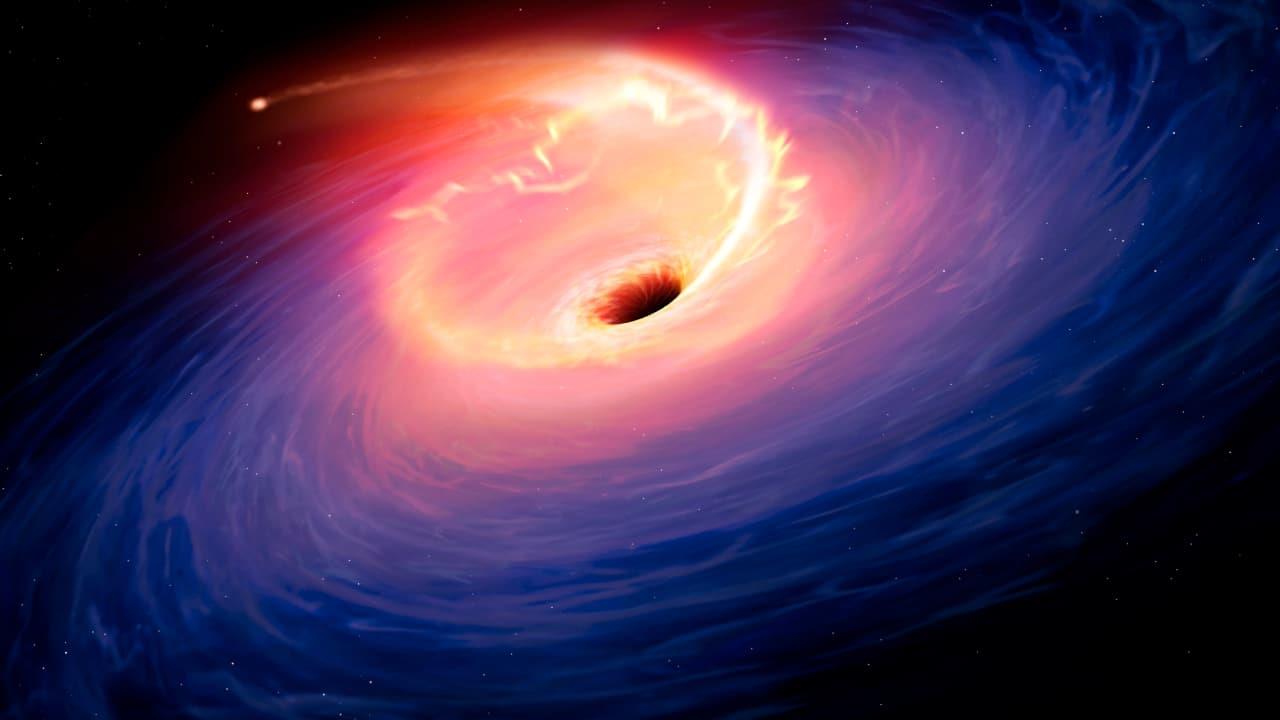
Physicist Explores What Would Happen If A Small Black Hole Hits A Human Body
Have you ever wondered what would happen if a small black hole went straight through your body? It might sound like something from a science fiction movie, but a physicist has actually taken this question seriously, not to scare people, but to help scientists better understand dark matter, one of the biggest mysteries in modern physics.
The idea comes from Professor Robert Scherrer, whose recent article in the International Journal of Modern Physics D looks into the possible effects of a so-called primordial black hole passing through a human being.
These are not the massive black holes we find in space today. Instead, they are theoretical black holes that may have formed in the first fraction of a second after the Big Bang. Their masses can vary a lot, from much lighter than a paperclip to much heavier than the Sun. Some scientists believe these ancient black holes could be part of, or even all of, the universe's dark matter.
What Happens if a Black Hole Goes Through a Person?
Scherrer wanted to find out the smallest possible size of a primordial black hole that could seriously hurt a person. Understanding this could help scientists figure out the possible masses of primordial black holes, and therefore, the nature of dark matter.
His new work builds on an earlier study he did with researchers Jagjit Singh Sidhu and Glenn Starkman. That study looked at another idea about dark matter called MACROs, large, composite objects made up of huge numbers of particles. The team discovered that if MACROs existed and ever went through a person, they would cause severe damage. Since no one has ever been killed by one, researchers can rule out certain sizes and types of MACROs.
Inspired by this, Scherrer realized he could use similar calculations and apply them to primordial black holes. He also admits he had read a science fiction story in the 1970s where a character died after a black hole went through them, and he was curious to know if that could actually happen.
Recent advances, such as the detection of gravitational waves from colliding black holes and the release of images of black holes themselves, have sparked renewed scientific interest in this topic. So Scherrer decided to find out what the physics actually predicts.
Shock Waves and Tidal Stretching
In his analysis, Scherrer focused on two main effects that a passing black hole could create inside the human body.
1. Supersonic shock waves
If a primordial black hole is moving faster than the speed of sound, which is very likely in space, it would generate shock waves as it travels. These waves create a cone-shaped burst of energy, similar to the sonic boom made when a jet breaks the sound barrier. Inside the human body, such a shock wave would tear through tissues like a bullet, destroying cells along its path.
2. Tidal gravitational forces
Black holes are known for their intense gravity, and even a small one would produce tidal forces, the difference in gravitational pull between two nearby points. These stretching forces would pull on the body as the black hole passed, tearing tissues apart. According to Scherrer, the brain would be the most vulnerable because its cells are especially sensitive to deformation.
Should Anyone Be Worried?
The short answer is no. Although these findings help scientists improve their understanding of dark matter, they do not mean we should worry about dying from a roaming black hole.
Scherrer points out that primordial black holes might not exist at all. And even if they do, the chance of one passing through a human being is so small that it's essentially zero.
A large primordial black hole, about the size of an asteroid or bigger, could cause serious injuries, similar to a gunshot wound. A very small one, however, might pass through the body without anyone even noticing. But these objects would be so rare that an encounter is practically impossible.
So, while the physics may be dramatic, the real-world risk is very low. Instead, studies like this help scientists piece together what dark matter might be, and what strange possibilities the universe still holds.
Legal Disclaimer:
MENAFN provides the
information “as is” without warranty of any kind. We do not accept
any responsibility or liability for the accuracy, content, images,
videos, licenses, completeness, legality, or reliability of the information
contained in this article. If you have any complaints or copyright
issues related to this article, kindly contact the provider above.


















Comments
No comment